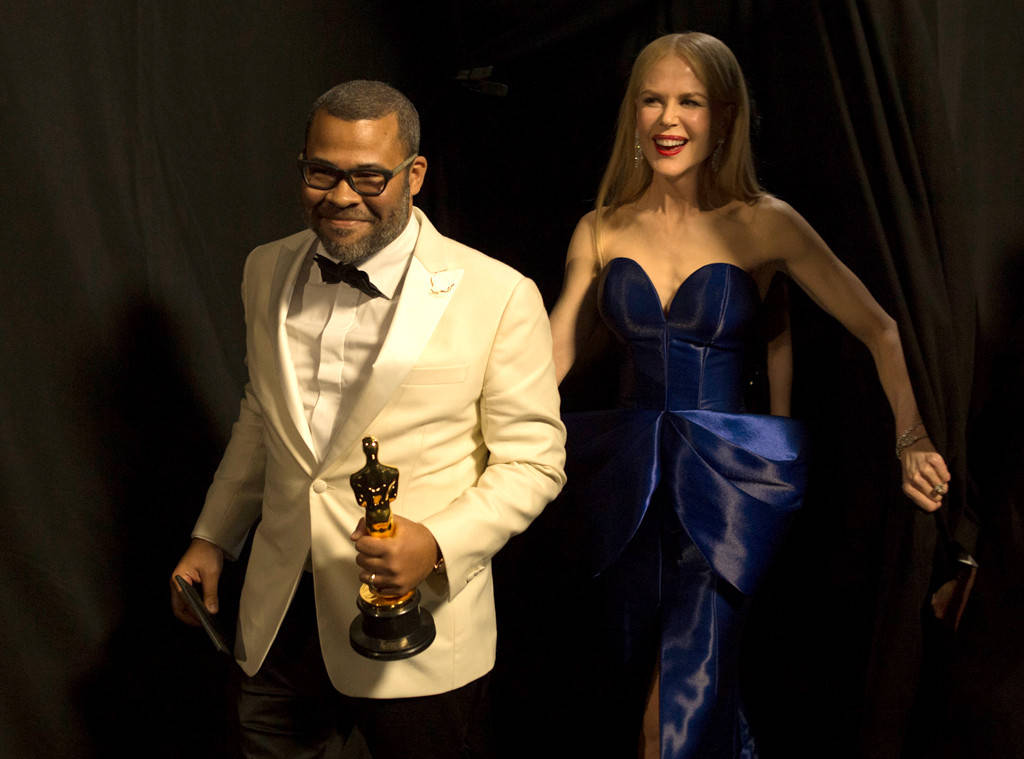by Jorge Molina

Here we are. The Oscars are over. After six months (this was a long season!) of never ending think pieces, desperate For Your Consideration ads, and prediction anxiety, we can finally take a breather. So, before we’re ready to start doing it all over again (because, let’s be honest, despite everything, we love this), let’s decompress a little. There’s nothing better than a good list of stats and numbers to clear your mind.
As a palate cleanser, and as a farewell to Oscar season for now, here’s are some statistics and data about the screenplay categories. Where we were before Sunday, where we are now. And how far we have yet to go...
- Between the ten nominees, the average length of a screenplay was of 117.2 pages.
- 25% of the nominees were female. That’s four out of sixteen: Emily V. Gordon, Greta Gerwig, Vanessa Taylor, and Dee Rees.
- 5 nominees were people of color: Kumail Nanjiani, Jordan Peele, Guillermo del Toro, Dee Rees and Virgin Williams. That’s 31.25%.
- James Ivory and Dee Rees (12.5% of the nominees) identify as LGBT.
- Jordan Peele was the first black man to win Best Original Screenplay. Nine years ago, in 2008, Geoffrey S. Fletcher became the first African-American to win in the Adapted Category for Precious. He was followed by John Ridely for 12 Years a Slave, and Barry Jenkins and Tarrell Alvin McCraney for Moonlight last year.

- Dee Rees became the first African-American woman to be nominated for Best Adapted Screenplay. No black woman has ever won in any writing category.
- 68.75% of the nominees (eleven in total) received their first nomination this year. Two nominees had previously won: Aaron Sorkin for The Social Network in 2010, and Martin McDonagh for his short film Six Shooter in 2006 (though not in a writing category).
- Kumail Nanjiani was the first Pakistani nominee in any writing category.
- James Ivory became the oldest winner of a competitive Oscar (in any category), at 89. The youngest winner in a writing category was Ben Affleck for Good Will Hunting. He was 25.
- Ruth Prawer Jhabvala won twice in the Adapted Category for A Room with a View and Howard’s End, both directed by James Ivory. He thanked her in his speech on Sunday.

- Logan became the first nominee to be based on superhero comic books. (There have been two previous nominees based on graphic novels: A History of Violence and Ghost World)
- For the first time in history, all five Best Director nominees also wrote (or co-wrote) their own films. Three of them also got screenplay nominations (Del Toro, Gerwig, and Peele).
And, just for the fun of it, here are some other fun facts about the Screenplay category through the years:
- Frances Marion was the first woman to win a screenplay award in 1930 for The Big House. The last time a woman won in Adapted Screenplay was Diana Ossana for Brokeback Mountain in 2005. In Original Screenplay it was Diablo Cody in 2007 for Juno.
- Five foreign films have won screenplay Oscars: Marie-Louise in 1945, The Red Balloon in 1957 (which was also the first and only time a short has won a screenplay award), Divorce Italian Style in 1963, A Man and a Woman in 1967, and Talk to Her in 2003.

- Emma Thompson is the only Oscar-winning actress who also has an Oscar for writing, for Sense and Sensibility in 1995. (Ruth Gordon, who won Supporting Actress for her dialobic turn in Rosemary's Baby, received three writing nominations but never won those races)
- Woody Allen has the most screenplay nominations, with 16. He has won thrice for Annie Hall, Hannah and her Sisters, and Midnight in Paris. (Billy Wilder is in runner up position with 12 nominations for writing and also 3 wins in those categories).
- Toy Story was the first animated film to get nominated for a screenplay award. No animated film has ever won.